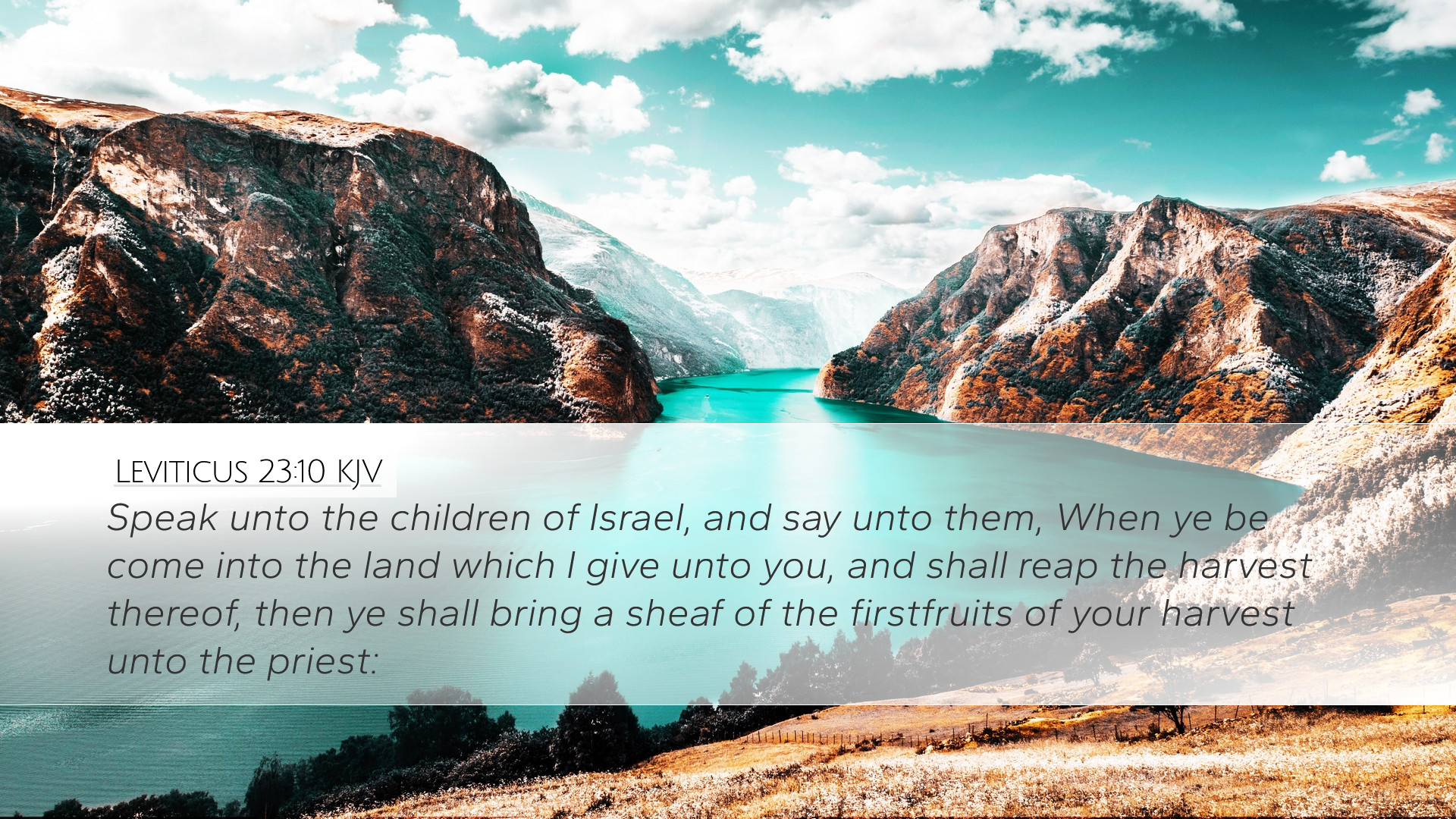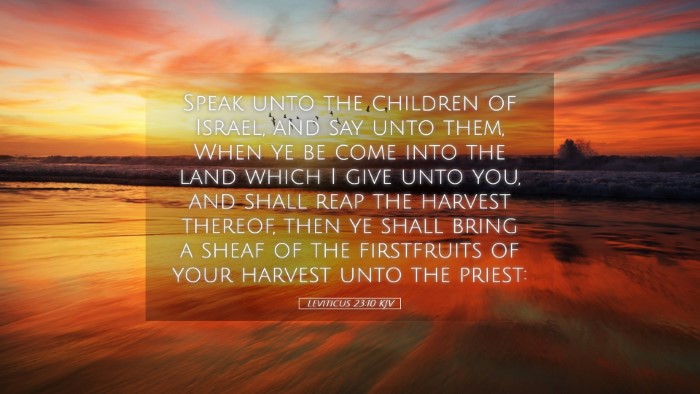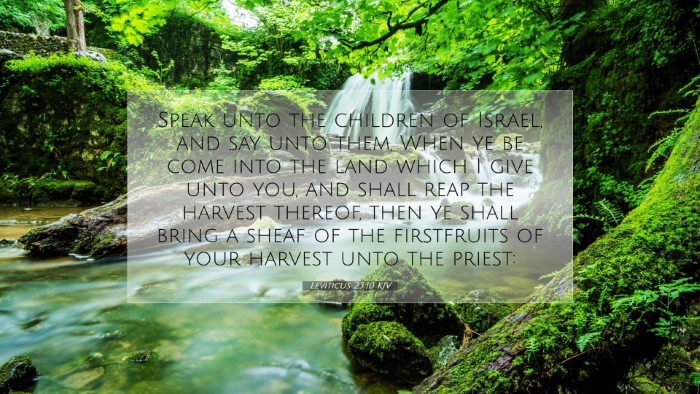Commentary on Leviticus 23:10
Verse: "Speak unto the children of Israel, and say unto them, When ye be come into the land which I give unto you, and shall reap the harvest thereof, then ye shall bring a sheaf of the firstfruits of your harvest unto the priest:"
Introduction
This verse introduces significant elements of agricultural practice, ceremonial worship, and theological symbolism within the Mosaic Law. As the children of Israel prepare to enter the Promised Land, God instructs them regarding the acknowledgment of His provision through the offering of firstfruits. Understanding this command is crucial for grasping the importance of gratitude towards God and the communal expression of faith and blessings.
Exegesis and Context
Leviticus 23 outlines various sacred festivals, with the offering of firstfruits forming an essential part of Israel's worship practices. The context shows that God's law was framed at a pivotal moment in Israel's history when they were transitioning from the wilderness journey to possessing the land promised to their forefathers. This offering symbolizes recognition of God's sovereignty over agriculture and His ongoing provision for His people.
1. The Divine Command
Matthew Henry emphasizes that the command is addressed specifically to the children of Israel, underscoring their unique covenant relationship with God. This relationship brings a responsibility to acknowledge God in their harvest, reflecting gratitude for the bounty received from Him.
2. The Timing and Place
In addressing the “land which I give unto you,” the text implies that the blessings are gracious gifts from God. Albert Barnes observes that God's covenantal promise extends beyond mere geography; it embodies His faithfulness to Israel. The timing of the harvest—immediately upon reaping—is significant as it emphasizes the immediacy of thankfulness in recognition of God’s provision.
3. The Offering of the Sheaf
The offering of a sheaf of firstfruits signifies the dedication of the entire harvest to God. Adam Clarke elaborates on this by suggesting that the sheaf represents the acknowledgment that all abundance is derived from God's goodness. The act of dedicating the firstfruits is an act of worship that incorporates both personal and communal elements, highlighting collective gratitude.
Theological Implications
This command has profound theological implications not only in historical Israel but also in contemporary Christian practice. The firstfruits serve as a metaphor for Christ's resurrection as the firstfruit of those who have fallen asleep (1 Corinthians 15:20), creating a direct link to the New Testament understanding of redemption and salvation.
1. Recognition of God's Sovereignty
By presenting the firstfruits, the people acknowledge God's authority over their land and livelihoods. According to Matthew Henry, this reflects a fundamental principle of faith: recognizing that every good gift comes from above (James 1:17). This principle calls believers today to examine their attitudes toward stewardship and gratitude.
2. Commitment to God's Ingathering
The offering is not merely an action of devotion but also a commitment to God's ongoing work of gathering His people. Albert Barnes notes that the act of giving firstfruits demonstrates an understanding that what they possess is ultimately owned by God. It points to a larger eschatological expectation—the belief that God's harvest encompasses all believers.
Practical Applications
For pastors, students, theologians, and scholars, this verse invites numerous practical applications in various ministry contexts.
1. Cultivating a Attitude of Gratitude
Increased focus on producing firstfruits through worship and service can enhance the church’s collective and individual expressions of gratitude, modeling a lifestyle of thanksgiving. Adam Clarke encourages the Christian community to embody this sacrificial spirit in their daily lives, working to actively express gratitude in both personal and corporate worship settings.
2. Fundamental Principles of Stewardship
Understanding that our resources are ultimately God’s promotes a culture of stewardship. Church leaders can employ teachings on firstfruits to emphasize responsible management of resources, ensuring offerings—the first and best—are dedicated to God's work, both in terms of finances and time.
Conclusion
Leviticus 23:10 serves as a foundational text promoting principles of gratitude, stewardship, and acknowledgment of God’s provision. Insights drawn from Matthew Henry, Albert Barnes, and Adam Clarke together show the richness of this commandment, encouraging readers to contemplate their own practices surrounding offerings and their overall relationship with God. It invites reflection on the spiritual harvest leading to eternal life, drawing parallels with Christ's offering of Himself as the ultimate firstfruit, affirming God's continued faithfulness throughout generations.


